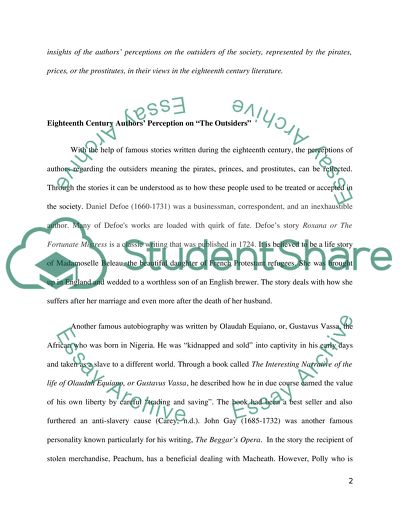Cite this document
(“18th-Century Literature: Pirates, Princes and Prostitutes Essay”, n.d.)
Retrieved from https://studentshare.org/literature/1427220-18th-century-literature-pirates-princes-and-prostitutes
Retrieved from https://studentshare.org/literature/1427220-18th-century-literature-pirates-princes-and-prostitutes
(18th-Century Literature: Pirates, Princes and Prostitutes Essay)
https://studentshare.org/literature/1427220-18th-century-literature-pirates-princes-and-prostitutes.
https://studentshare.org/literature/1427220-18th-century-literature-pirates-princes-and-prostitutes.
“18th-Century Literature: Pirates, Princes and Prostitutes Essay”, n.d. https://studentshare.org/literature/1427220-18th-century-literature-pirates-princes-and-prostitutes.


